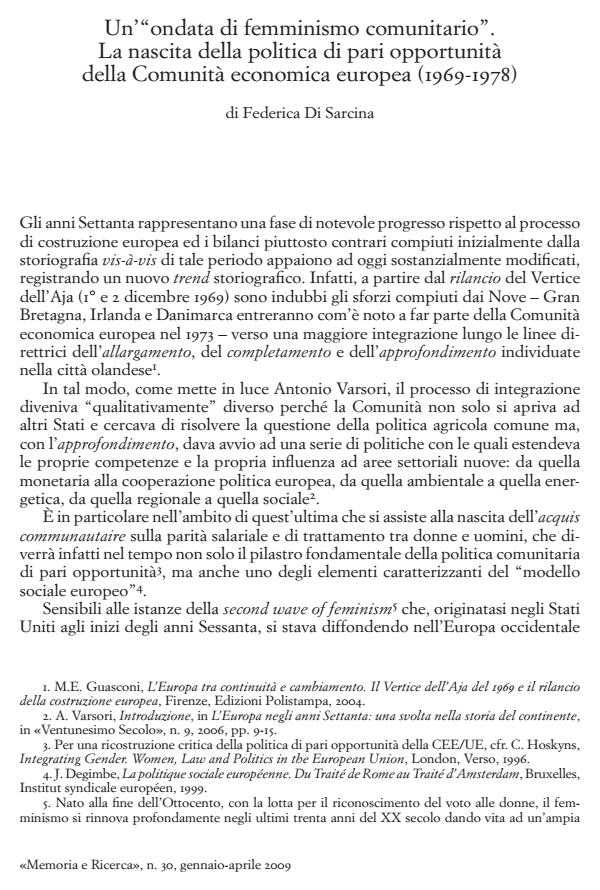Un’"ondata di femminismo comunitario". La nascita della politica di pari opportunità della Comunità economica europea (1969-1978)
Journal title MEMORIA E RICERCA
Author/s Federica Di Sarcina
Publishing Year 2009 Issue 2009/30
Language Italian Pages 11 P. 59-69 File size 95 KB
DOI 10.3280/MER2009-030006
DOI is like a bar code for intellectual property: to have more infomation
click here
Below, you can see the article first page
If you want to buy this article in PDF format, you can do it, following the instructions to buy download credits

FrancoAngeli is member of Publishers International Linking Association, Inc (PILA), a not-for-profit association which run the CrossRef service enabling links to and from online scholarly content.
A "wave of feminism" in the EEC. The origins of European equal opportunity policy (1969-1978) - This paper focuses on the birth of the acquis communautaire on equal pay and treatment between women and men in the second half of Seventies, after the approval of the first Social Action Program (1973). Fundamental component of the EEC equal opportunity policy as well as of the current "European social model", the three directives adopted in this period marked a crucial step towards a more balanced labour market for women, notoriously affected by pay discriminations and occupational segregation. Thanks to this legal acts, EEC/EU member States adapted their internal legislation, recognizing and protecting - from a legal point of view - the equality principle between women and men workers established at the European level.
Parole chiave: Politica sociale della CEE, Politica comunitaria di pari opportunità, Parità salariale, Modello sociale europeo, Femminismo, Storia del lavoro femminile EEC Social Policy, EEC/EU equal opportunity policy, Equal pay, European social model, Feminism, history of women workers
Federica Di Sarcina, Un’"ondata di femminismo comunitario". La nascita della politica di pari opportunità della Comunità economica europea (1969-1978) in "MEMORIA E RICERCA " 30/2009, pp 59-69, DOI: 10.3280/MER2009-030006